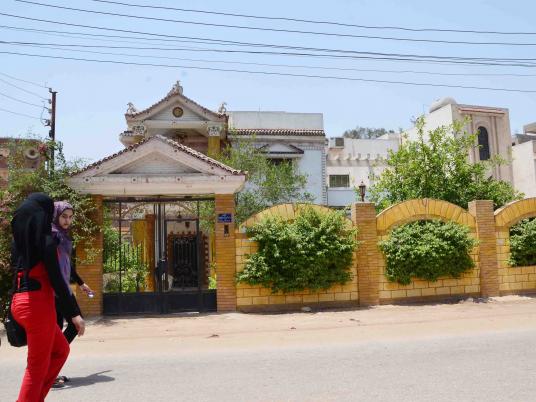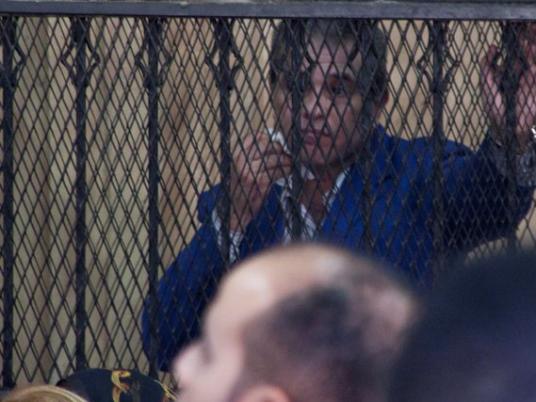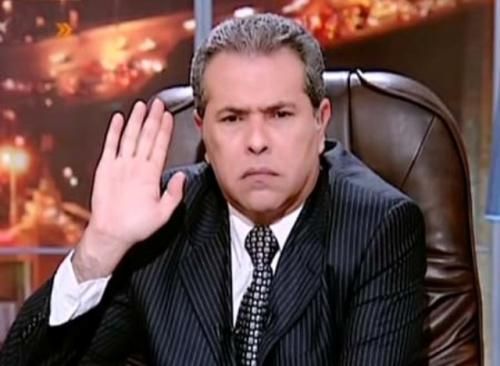
In its early days, the 25 January revolution was like a bracing gale of change whose winds blustered through the country, forcing the tall oaks of corruption out at the roots and blowing reactionary dirt from forgotten corners, as Thomas Friedman might put it.
Those early winds have calmed now, or are perhaps just buffeted by the various walls the army has erected in downtown Cairo.
The bracing gale has now been replaced by the effluvia of a never-ending transition led by a trigger-happy junta and a creeping realization that much remains the same. To summon the spirit of Friedman again, it is as if the glorious tide came in on Egypt’s noble flat earth and then went out again, leaving behind various marine detritus, also known as Egypt Independent’s five most controversial figures of 2011.
This is list, of course, only a partial one.
Ahmed Spider
Spider, a willowy youth with a penchant for Michael Jackson T-shirts, is unclassifiable, his talents ranging from singer to media personality to Freemason hunter.
The protégé of Faraeen TV presenter Tawfik Okasha (who also figures on this list), Spider told Okasha during an interview that [We Are All Khaled Saeed Facebook page administrator] Wael Ghonim “is my whole life.” The Google executive-turned-activist filed a libel lawsuit against the singer-turned-professional conspiracy theorist.
Ghonim figures in Spider’s theory that Egypt is under attack from the Freemasons, and that the revolution was planned in advance by shadowy figures.
The spider legend has grown to such an extent that now Spider the idea is bigger than Spider the man, as was demonstrated by Spider’s promise during the Okasha interview that he would file charges against himself if proven wrong about his allegations against Ghonim.
Tawfik Okasha
Like his protégé Spider, Okasha is one of Egypt’s preeminent miners digging for Freemasons. When not doing this, he is presenting his Egypt Today program on his satellite channel Faraeen.
The middle-aged Okasha is remarkable in his energy and vitality, delivering enraged monologues about the Zionist-Freemason plot against Egypt interspersed with tributes and messages to his flock, the Supreme Council of the Armed Forces (SCAF) supporters who gather on some Fridays in Abbaseyya Square.
Okasha’s most popular recent rant was a warning against the danger of 13/13/2013, the day when Freemason powers are apparently at their highest, a message undermined slightly by a studio hand pointing out live on air that there is no 13th month in the calendar.
Hassan al-Ghandour
Ghandour is included on this list as a representative of the extremist wing of the “silent” majority who, we are led to believe, just want stability and a quiet life and are fed up of Tahrir protests and sit-ins because of their adverse effect on the country’s wheel of production.
This silent majority has adopted Abbaseyya Square as its spiritual home and uses it to express discontent at protests by protesting and threatening physical violence against journalists who come to cover the protests.
Ghandour, a founder of the “We Are Sorry, President” Facebook page feels so strongly about the importance of stability and non-chaos that he once kidnapped a political activist, Amr Gharbeia, in the mistaken belief that Gharbeia is a member of the April 6 Youth Movement.
When not kidnapping, Ghandour pens songs. He is also the author of “You Are a Legend, General,” a tribute to deposed president Hosni Mubarak.
Sheikh Khaled Abdalla
Al-Nas television presenter Sheikh Khaled Abdalla is part of a school of particularly shrill religious demagogues who turn every possible event into an attack on Islam.
Sheikh Khaled has declared that, “any Muslim who pays for Youm7 or Al-Masry Al-Youm newspapers is a sinner because they openly attack God, the Prophet and state stability and have agendas.”
“Anyone who wants to read them should look at them on the net,” the sheikh advises.
The sheikh is particularly scornful of Tahrir Square protesters, who he describes as “worthless kids who travel to Serbia and Poland and take money from here and there.”
Two days after the army’s attack on a peaceful Christian march at Maspero during which 28 people were killed, Sheikh Khaled reserved most of his vocal criticism for Christian priests and the liberals who fail to criticize these Christian priests, comparing them to the unfavorable coverage Salafi preachers receive from the liberal media.
He told his viewers that, “Christians in Egypt have become a state above everything.”
He backs up this position with the remarkable claim that Pope Shenouda, head of the Coptic Orthodox Church, is able to spring Christian prisoners from any Egyptian prison cell with a phone call.
The honorable citizen
The honorable citizen comes in various incarnations and his function is to defend the state and its institutions from rogue elements (usually interpreted as protesters) intent on destroying Egypt.
The earliest appearance of the honorable citizen this year was when he assisted the army in violently breaking-up a Tahrir sit-in on 9 March. Since then he has intimidated and attacked protesters on several occasions, most notably on 9 October, when state media requested his help protecting the army from an attack by Christian protesters.



